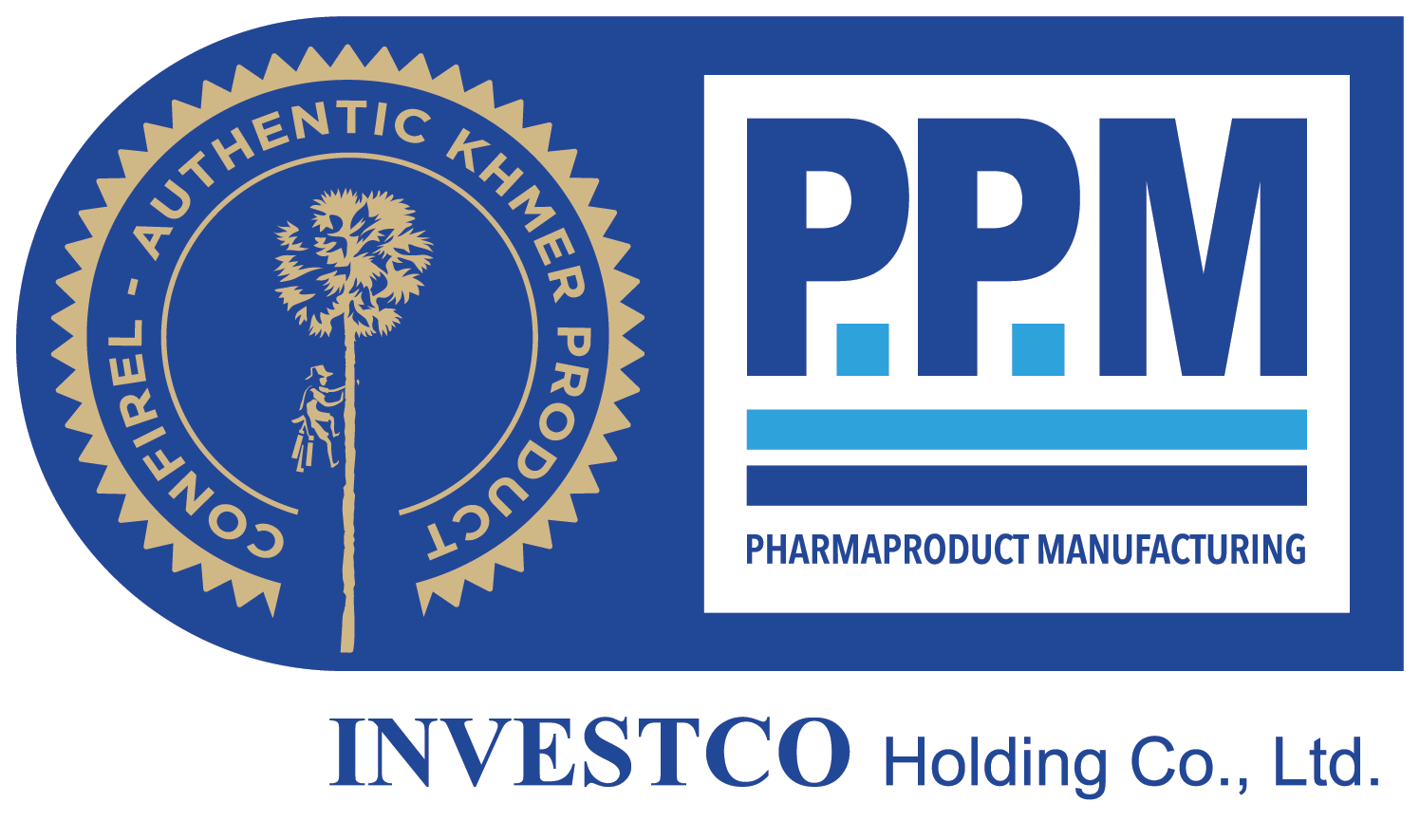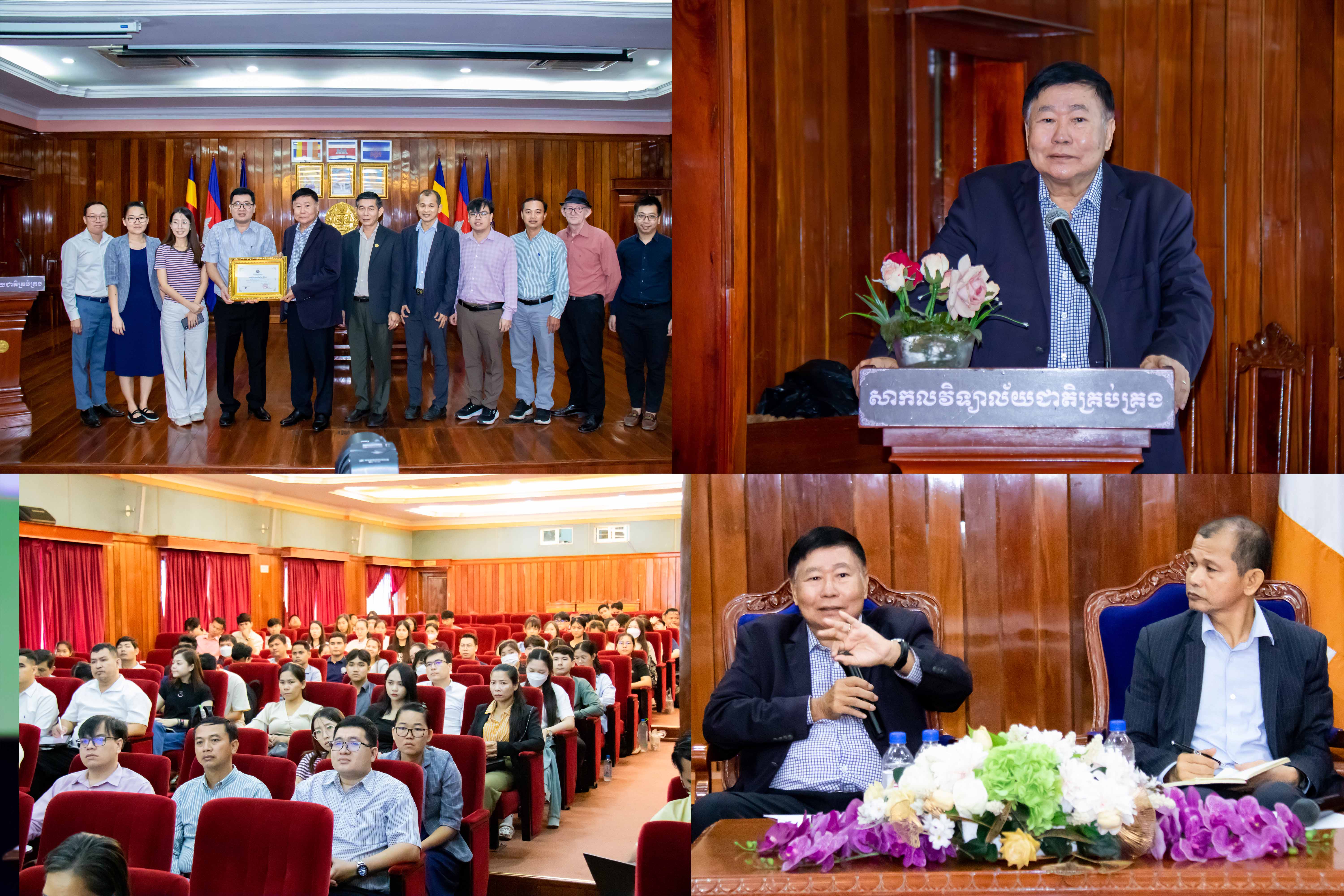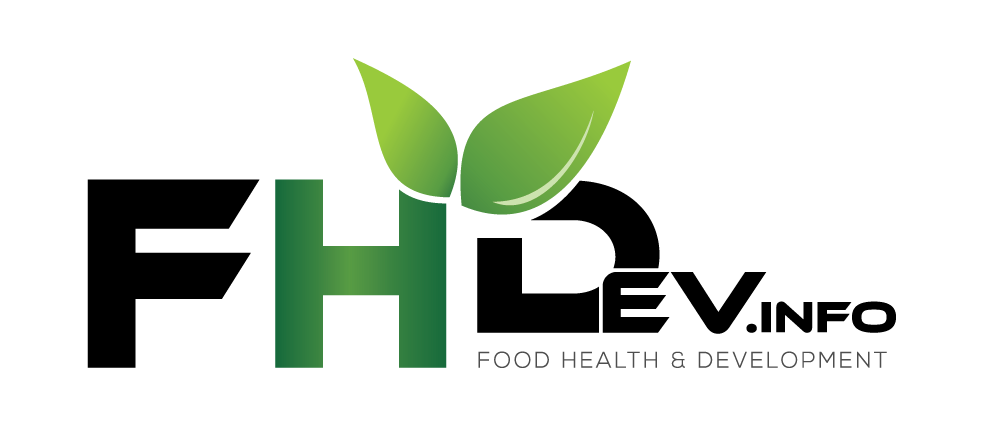


Dr. Hay shares the keys to PPM's success with students at the National University of Management
Publish date: 09 December 2024 / Health / Author : ATH Sokren
At the end of November, Dr. Hay Ly Eang, founder and president of PPM Laboratories, was invited to give a lecture on the theme "PPM and the roles of public communication" to master's students at the National University of Management.
After his speech, there was a lot of questions from the students. Dr. Hay Ly Eang reminded the audience that PPM was created in the early 90s when the country was experiencing a very difficult situation after almost thirty years of civil war, marked among other things by the terrible genocidal regime of the Khmer Rouge. In those 90's, everything was lacking: human resources, materials and also capital because the banks did not lend money.
While Cambodia was flooded with fake medicines endangering the health of the population, especially the poor, he recalled that, thanks to his know-how in the pharmaceutical field and his determination to make safe medicines available to the population, he was able to convince the European Union's ECIP program to support him financially to launch the PPM laboratories project with some former pharmacists who survived the Pol Pot regime.
More than thirty years later, PPM laboratories are not only the country's leading producer of medicines but also export a large part of their production, particularly to French-speaking African countries.
To the students very interested in knowing the secrets of PPM's success, Dr. Hay stressed that it was due to a good production strategy, a strong knowledge of market needs and a very direct communication with distributors and pharmacies. “What was effective in our early days,” he noted, “were the messages of King Norodom Sihanouk and Prime Minister Samdach Hun Sen in which, in September 1996, they publicly declared on all televisions that they knew and appreciate well Kinal, the effective painkiller launched in 1960 under the Sangkum, whose production PPM took over by making it a flagship range.”
“In the pharmaceutical production sector, there must be absolute transparency on compliance with international standards in order to guarantee the quality and safety of products,” he insisted, adding that the capacity for innovation was a key factor in gaining and maintaining a leading position in the markets.
Currently, PPM products are present throughout Cambodia and in 16 countries, representing a potential of 20,000 pharmacies and 350 million customers worldwide. “We aim to expand our market potential to 400 million customers by 2025,” he concluded.




